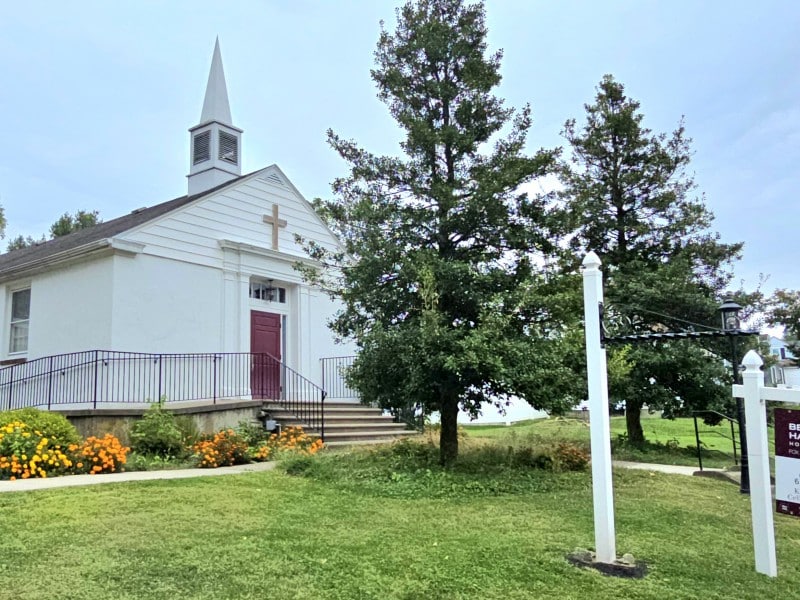Local Man Learns of Cancer Risk Through St. Luke’s Health Research Study
Though only 38, Nick Lumi of Nazareth recently underwent a colonoscopy to search for the presence of polyps or evidence of cancer thanks to information uncovered through his participation in St. Luke’s University Health Network’s community health research study DNA Answers.

Though only 38, Nick Lumi of Nazareth recently underwent a colonoscopy to search for the presence of polyps or evidence of cancer.

Lumi, a Physician Assistant with St. Luke’s University Health Network, doesn’t have any symptoms of colon cancer or a family history of it, yet he underwent the colonoscopy because a special blood test offered at no cost via a St. Luke’s community health research study called DNA Answers. The test found that he carries a gene variant, or mutation, in a gene associated with Lynch syndrome.
Lynch syndrome is an inherited condition in which there is an increased risk for developing different types of cancer, most notably colorectal cancer. The lifetime risk of developing colorectal cancer in the general population is about 5 percent, but with this syndrome it jumps to 40 to 60 percent for women and 60 to 80 percent for men, with cancer often presenting in people under 50.
In December, St. Luke’s launched the community health research study, DNA Answers, in partnership with Helix Inc., a California-based leader in population genomics. One of the goals of this joint initiative is to offer participants the opportunity to participate in research and have access to the latest screening techniques that support what is referred to as “precision medicine.”
“Through insights gleaned from patients’ unique genetic make-up, precision medicine enables ‘individually tailored’ health care–from early disease diagnosis to individualized treatment,” said St. Luke’s Senior Vice President of Clinical Integration Dr. Aldo Carmona.
Principal Investigator for DNA Answers, Chairman of the Department of Pathology and Laboratory Medicine and Medical Director for Precision Medicine at St. Luke’s, Dr. Christopher Chapman, noted, “DNA Answers initially aims to enroll 100,000 participants over four years. The individuals who participate in the research study will be provided, at no cost, with important health information about their potential risks for serious health conditions such as certain types of cardiovascular disease and different types of cancer, thereby allowing them to make proactive decisions in conjunction with their healthcare providers to potentially delay or even prevent these conditions from occurring later in life.”

“At first, having the test was a novelty to me, to learn if I have a predisposition to liking the taste of cilantro or to learn more about the geographic location of my ancestry,” said Lumi.
Any research participant has the opportunity to register an account with Helix to access that additional information.
In terms of learning that he carries a gene variant associated with Lynch Syndrome, Lumi recalled that “it was a surprise.”
“I’m glad I took the blood test, because now I can do something to try to prevent the cancer from developing or have it treated more precisely if I’m found to have it,” he said.
Within two days of receiving his test results, he had an initial counseling session with Monica Dillon, a member of St. Luke’s certified genetic counseling team. Shortly thereafter, his colonoscopy was performed by GI specialist Robert Malcolm, MD, of St. Luke’s Gastroenterology at St. Luke’s Monroe Campus.
“Both Monica and Dr. Malcolm were fantastic… They were concise, informative and thorough. Dr. Malcolm explained that Lynch syndrome cancers may develop quickly from benign polyps to precancerous polyps to invasive cancer, so I will have a colonoscopy yearly for the next several years at least, before spreading them out, as well as upper endoscopy every two years,” Lumi said. “I cannot say enough about how well Dr. Malcolm explained and addressed my concerns; it gave me a great sense of confidence with what our management plan was for moving forward.”
“Although this diagnosis was a surprise for me, having the knowledge and information surrounding this diagnosis empowers me to have my children screened at the appropriate time,” he added. “As a parent, this knowledge is invaluable.”
To learn more about St. Luke’s community research study, DNA Answers, visit DNAanswers.org.
This community health news is brought to you in partnership with St. Luke’s University Health Network.



